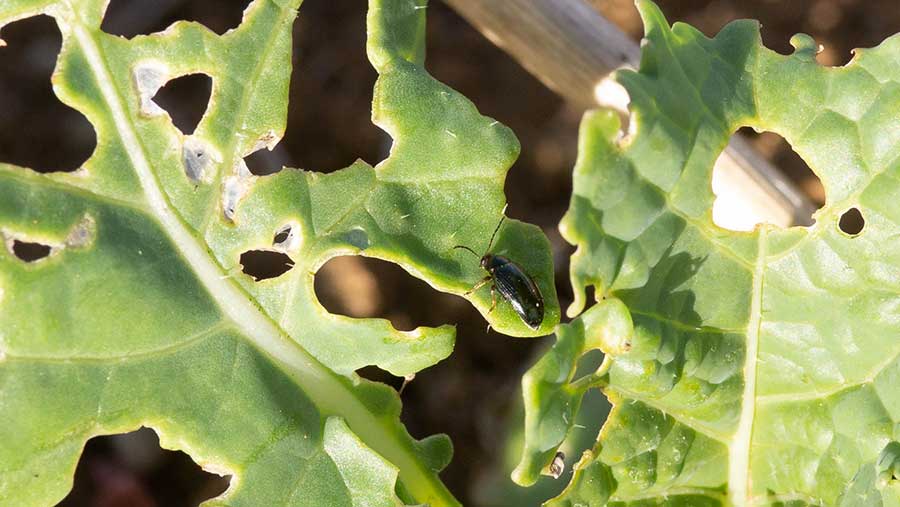Play all audios:
© Tim Scrivener Oilseed rape growers are invited to take part in a field lab investigation into non-chemical methods of controlling cabbage stem flea beetle, which is currently one of the
biggest threats to the UK crop. The meeting, which will take place on 26 November at Adas in Boxworth, Cambridgeshire, will look at methods of defoliating the crop in winter to tackle the
beetles during the larval stage. The research is in response to both the neonicotinoid seed treatment ban and growing resistance to foliar pyrethroid sprays which make controlling the
beetles increasingly difficult. See also: Farmers report severe flea beetle attacks in emerging oilseed rape crops LARVAE REDUCTION Any farmers growing rapeseed are invited to take part in
the research, which is being led through the not-for-profit Innovative Farmers network. Initial research plot trials by Adas have resulted in a 30-60% larvae reduction. Sacha White, research
entomologist at Adas, says “larvae spend about six months in the plants at a critical growth stage, so we believe they may be in part responsible for preventing rape varieties from
achieving their true yield potential”. Growers involved in the field lab will be able to choose the defoliation method that is best suited to their farm. The options will include livestock
grazing, topping, mowing or rolling the crop. It is hoped that this will increase larval mortality by exposure to both predation and cold weather. Visit Innovative Farmers for more
information or to book a place at the meeting.

